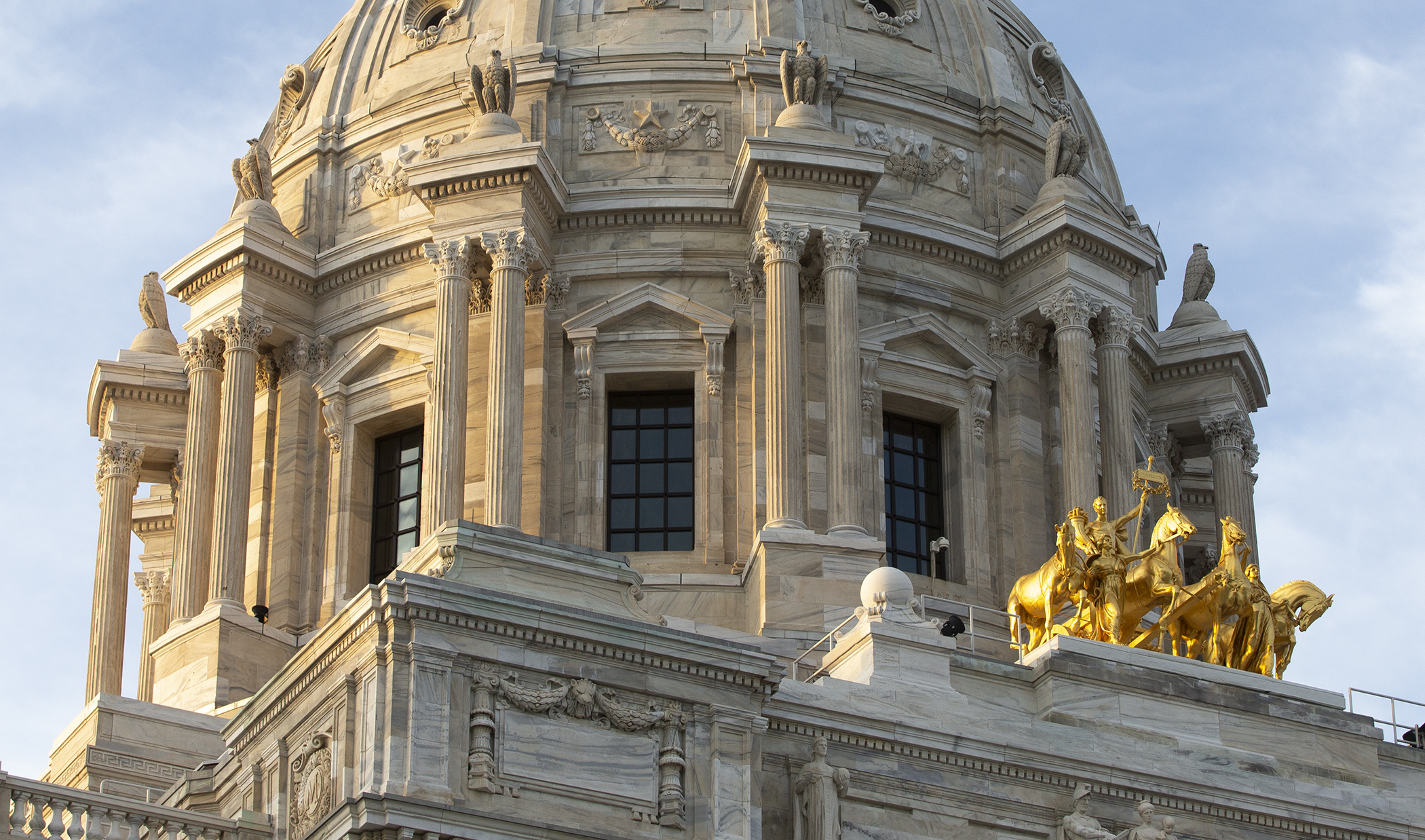Walz’s tax bill would net revenue bumps from corporations and high earners

Is Gov. Tim Walz’s tax proposal fair or regressive? Would its provisions send companies and wealthy individuals elsewhere? Or would it help make life easier for folks of more modest incomes, provided they don’t smoke?
It all depends upon whom you ask. And there were plenty of opinions shared at Thursday’s meeting of the House Taxes Committee. The bill that contains the governor’s proposal is HF991, sponsored by the committee chair, Rep. Paul Marquart (DFL-Dilworth). After a hearing full of public testimony, the bill was laid over for possible omnibus bill inclusion.
Its companion, SF961, sponsored by Sen. Carla Nelson (R-Rochester), awaits action by the Senate Taxes Committee.
“This is a first step,” Marquart said. “Next Friday, we’ll get the budget forecast and the first set of numbers to use. … The governor, Senate and House eventually need to come to a middle ground on the final bill.”
It was the first opportunity to see an estimate of how the governor’s provisions may affect revenue collection in the state, a significant issue with a looming budget deficit. House nonpartisan staff projects that the proposed tax changes would increase General Fund revenue by $972.7 million in fiscal year 2022.
Corporate taxes
Over half of that increase would come from corporate franchise taxes, which a revenue estimate placed at an additional $526.9 million. The biggest bump in that category would be $261.1 million brought about by a change in state tax law regarding repatriated income from foreign companies owned by domestic ones.
Another significant bump would come from increasing the state’s corporate rate to 11.25%. It’s estimated that would result in an increase of $236.5 million for fiscal year 2022.
Individual income taxes
More wealth could mean higher taxes under Walz’s plan. It’s estimated that $351.8 million more would be collected in individual income taxes, with $256.5 million of that coming from an additional tax on net capital gains and dividend income of over $500,000 for individuals, estates and trusts, the rate climbing for those receiving over $1 million in a year.
An additional $214.7 million would be raised by creating a fifth tax bracket of 10.85% for those earning over $500,000, or $1 million for those married filing jointly. It’s estimated that another $11.6 million would be gained from reinstating the $2.7 million exclusion from the estate tax.
Sales taxes
Revenue from gross receipts taxes would increase by $75 million under the governor’s plan, with $50.5 million of that coming from larger cigarette excise taxes. Higher moist snuff excise taxes would bring in an additional $13.3 million. Those taxes proved controversial with some public testifiers and trade organizations, as did a proposed increase on certain data center software, a change that’s projected to increase state revenue by $10.2 million.
Would anyone see their taxes cut?
The largest reduction in revenue on the balance sheet would come from two changes in individual income tax brackets. One would expand the second individual income tax bracket of 5.35% to include those individuals making up to $29,270 (or $42,800 for those married filing jointly). This would reduce state revenue by $58.8 million.
Rates for the working family tax credit would increase, resulting in lower taxes on an estimated 313,400 tax returns, averaging out to about $160 per return. The cost to the General Fund would be $50.3 million in fiscal year 2022.
The working family credit would also be offered to those who have Individual Taxpayer Identification Numbers, which are issued to those ineligible for social security numbers but who are required to pay taxes. Using 2018 numbers, this would result in 10,800 more tax returns qualifying for the credit at an average of $885 per return. This would cost the General Fund an estimated $9.8 million.
The bill also calls for $50.3 million of appropriations from a general reserve account.
Of the 45 people who either testified at Thursday’s hearing or submitted a letter to the committee, 22 were in favor of the bill, 23 against. The most controversial measures involved increased taxes on cigarettes and e-cigarettes (or “vaping” devices), with six speaking in favor of those measures, 16 against. Meanwhile, 13 testifiers praised what they saw as increased fairness in the tax code.
Related Articles
Search Session Daily
Advanced Search OptionsPriority Dailies
Speaker Emerita Melissa Hortman, husband killed in attack
By HPIS Staff House Speaker Emerita Melissa Hortman (DFL-Brooklyn Park) and her husband, Mark, were fatally shot in their home early Saturday morning.
Gov. Tim Walz announced the news dur...
House Speaker Emerita Melissa Hortman (DFL-Brooklyn Park) and her husband, Mark, were fatally shot in their home early Saturday morning.
Gov. Tim Walz announced the news dur...
Lawmakers deliver budget bills to governor's desk in one-day special session
By Mike Cook About that talk of needing all 21 hours left in a legislative day to complete a special session?
House members were more than up to the challenge Monday. Beginning at 10 a.m...
About that talk of needing all 21 hours left in a legislative day to complete a special session?
House members were more than up to the challenge Monday. Beginning at 10 a.m...